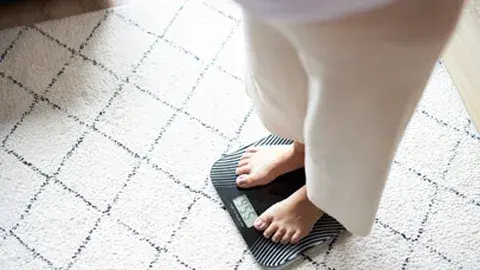What Is DHA? Benefits of Taking DHA Supplement for Pregnant Women and Foetus
Learn what DHA really is and why it is particularly important during pregnancy and throughout lactation
Docosahexaenoic acid (DHA) is a type of omega-3 fatty acids, alongside alpha-linolenic acid (ALA) and eicosapentaenoic acid (EPA).1,2 ALA is the parent fatty acid of the omega-3 family which is then converted to EPA, then on to DHA.1,3,4
Conversion Process of ALA to EPA to DHA
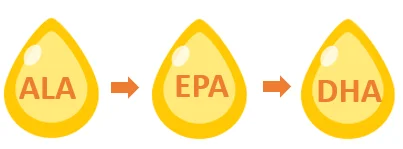
-
Conversion of ALA to DHA is limited as most of the dietary ALA undergoes oxidation process (splitting of the long ALA chains into smaller fragments) in the cells and only a limited amount is converted to EPA and DHA4
-
It has been shown that higher intake of ALA during pregnancy does not cause significant rise in DHA in the blood4,5
Important health benefits of DHA for pregnant/lactating women
Adequate consumption of DHA in pregnant and lactating women is important as DHA is a critical component for the developing the foetus’ cell membranes, particularly in the brain and retina.1,3,6 DHA supplementation is also associated with lower incidence of pre-term labour and delivery, lower risk of preeclampsia, increase in birth weight and reduction in postpartum depression incidences.7,8
DHA requirements are increased over normal during pregnancy to support foetal growth; especially in the third trimester.1,8 This is due to increased maternal blood volume and enhanced placental and foetal DHA requirements.1,8,9 Pregnant women become depleted in DHA because the foetus utilises most of the DHA for its nervous system development and obtains about 67 mg/day of DHA from the mother.7,10 During lactation, the mother’s body transfers 70 to 80 mg of DHA daily through breast milk.10 The high requirement of DHA during pregnancy and lactation diminishes maternal DHA stores to below pre-pregnancy levels.10 Therefore, the Ministry of Health Malaysia suggests a DHA intake of 200 mg/day for pregnant mothers in order to meet the DHA demands.6
Why is DHA supplement important for the foetus?
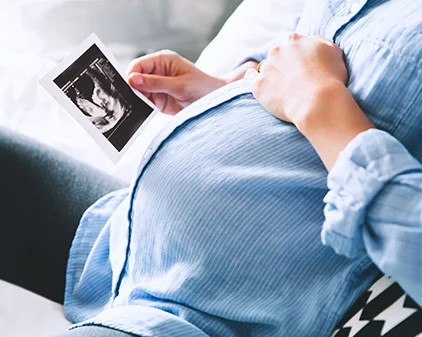
How to get Docosahexaenoic acid (DHA)?
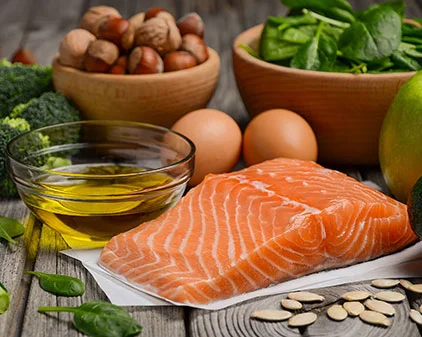
-
Fish (e.g. salmon, tuna, sardines, catfish, pollack,anchovies and herring)6,7,11
-
Algae-derived marine oils11
-
Eggs fortified with DHA12
What is the expert recommendation?
-
The Ministry of Health Malaysia suggests a DHA intake of 200 mg/day for pregnant mothers6
-
The Food and Agriculture Organization of the United Nations (FAO) recommends a minimum intake of 300 mg EPA+DHA per day of which at least 200 mg/day should be DHA for adult pregnant and lactating females7
-
The Perinatal Lipid Nutrition Project (PeriLip) and The Early Nutrition Programming Project (EARNEST) in collaboration with several international scientific societies suggest an intake of at least 200 mg/day DHA for pregnant and breastfeeding women3
-
The European Food Safety Authority (EFSA) recommends a 250 mg of EPA plus DHA intake daily (of which 100 to 200 mg should be DHA)8
Is there enough DHA in the diet?
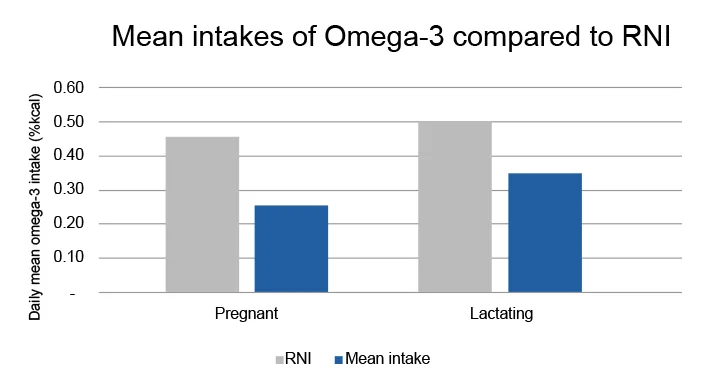
If mum eats fish, does she still need DHA supplementation?
How early should you start taking DHA supplementation?
What happens if mum is facing DHA deficiency?
References:
- Coletta JM, Bell SJ, Roman AS. Reviews in Obstetrics and Gynecology
- Greenberg JA, Bell SJ, Ausdal WV. Reviews in Obstetrics and Gynecology. 2008;1(4):162-169.
- Koletzko B, Lien E, Agostoni C, et al. J Perinat Med. 2008;36(1):5-14.
- DHA/EPA/Omega-3 Institute. 2018. Available at http://www.dhaomega3.org/Overview/Metabolism-of-Omega-6-and-Omega-3-Fat…. Accessed on 28 May 2018.
- Watson RR, Grimble G, Preedy VR, Zibadi S, editors. 2013; Volume 2. New York: Humana Press
- Ministry of Health Malaysia. Recommended Nutrient Intakes for Malaysia. 2017. Available at http://nutrition.moh.gov.my/wp-content/uploads/2017/05/FA-Buku-RNI.pdf. Accessed on 28 May 2018.
- American Pregnancy Association. Omega-3 fish oil and pregnancy. 2016. Available at http://americanpregnancy.org/pregnancy-health/omega-3-fish-oil/. Accessed on 28 May 2018.
- Hubinont C, Savoye T. Journal of Pregnancy and Reproduction 2017;1(1):1-7.
- Judge MP, Harel O, Lammi-Keefe CJ. Am J Clin Nutr. 2007;85(6):1572-1577.
- Morse NL. Nutrients 2012;4(7):799-840.
- World Health Organization. 2011. Available at http://www.who.int/elena/titles/bbc/fish_oil_pregnancy/en/. Accessed on 28 May 2018.
- Dietitians of Canada. 2013. Available at https://www.dietitians.ca. Accessed on 28 May 2018.
- Ng TKW, Nalliah S, Hamid A, Wong SR, Chee SL, Augustine CA. IeJSME. 2012;6(2):4-9.
- BabyCenter. 2016. Available at https://www.babycenter.com/0_eating-fish-when-youre-breastfeeding-how-t…. Accessed on 31 May 2018.
- Wan Rosli WI, Rohana AJ, Gan SH, et al. International Food Research Journal 2012;19:815-821.
- U.S. Department of Agriculture and U.S. Department of Health and Human Services. 2010. 7th Edition, Washington, DC: U.S. Government Printing Office.
- Healthline. 2017. Available at https://www.healthline.com/nutrition/how-much-omega-3. Accessed on 4 June 2018.
- American Pregnancy Association. 2018. Available at http://americanpregnancy.org/first-year-of-life/omega-3-supplements-bab…. Accessed on 29 May 2018.
- Carvajal JA. BioMed Research International. 2014;2014:526895.
- Jacka FN, Pasco JA, Rogers MJ and Kotowicz MA. Dietary omega-3 fatty acids and depression in a community sample. Nutritional Neuroscience 2004;7(2):101-6.






